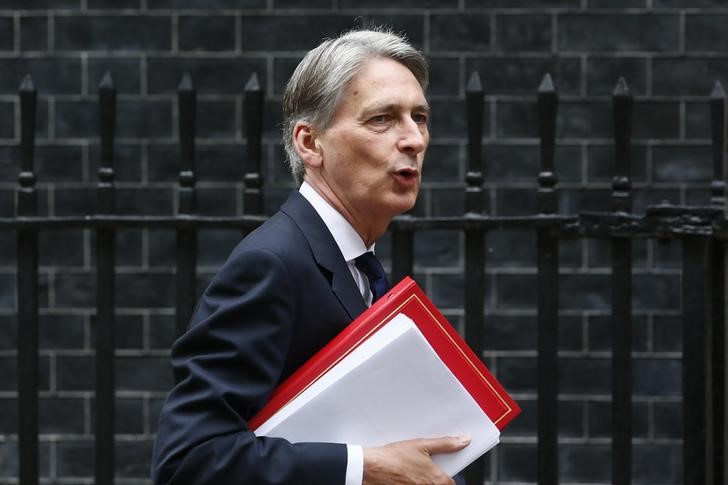(Bloomberg) -- U.K. Chancellor of the Exchequer Philip Hammond doesn’t plan to change the inflation gauge that the Bank of England targets in the Budget next week, according to two officials familiar with the matter.
While there has been speculation of a switch from CPI after the Office for National Statistics changed its preferred price measure to CPIH this year, no related alteration by the Treasury is imminent, said the people, speaking on condition of anonymity because the plans haven’t been published. The index is relatively new and needs time to build credibility, one of the people said.
The ONS moved to CPIH -- the consumer prices index including owner-occupiers’ housing costs -- because it believes that provides a more accurate gauge of the prices people actually face. The decision raised the possibility that the Treasury could switch the BOE’s goal, which is to keep inflation at 2 percent, from CPI to CPIH.
That idea was reinforced after the measure regained its crucial “National Statistics” status in July. It was stripped of the standard in 2014 over quality concerns.
In the Budget, which will be presented in Parliament on Nov. 22, Hammond will restate the BOE’s mandate, one of the people said. While the remit letter was previously published with the government’s spring Budget, Britain’s main fiscal event now takes place in the fall.
The central bank is in the spotlight after it raised interest rates this month for the first time in more than a decade. Inflation is at 3 percent and the bank forecasts a slow easing to the goal only on the basis of two or three rate hikes over the next three years. A switch to CPIH would probably not have a major bearing on policy as the two measures usually track one another closely.
Economists at Morgan Stanley (NYSE:MS) and RBC have both said a change is possible in the upcoming Budget. At Morgan Stanley, Melanie Baker and colleagues said it’s an “intriguing possibility” and, if it happened, could be seen as “marginally dovish” given CPIH is currently below CPI.
CPI has been the BOE’s target since 2003, when it was changed by then-Chancellor Gordon Brown from the Retail Prices Index. That measure continues and is used for setting payments on index-linked gilts, rail-fare increases and student-loan repayments. It’s a controversial index as there are questions over its quality and, at 4 percent, it’s well above both CPI and CPIH.
